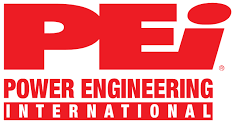Thyssenkrupp will be receiving almost €8.5 million ($9.9 million) in subsidies from the German Federal Ministry of Education and Research for the research and development of the large-scale production of alkaline water electrolysis (AWE).
The aim of the research is to achieve scale and reduce manufacturing costs, as well as expand the supply chain of 1GW electrolysis cells to enable larger project volumes to be implemented.
Martina Merz, Chairwoman of the Executive Board of Thyssenkrupp AG, said: “We have seen a significant shift in the project sizes towards several hundred megawatts to gigawatts in recent months so that large-volume and automated series production is already in line with market demand today.
Have you read?
RWE and partners to assess blue hydrogen potential in Slovakia
Edison and Snam support Italy’s green hydrogen valley project
“For these orders of magnitude, simple upscaling is not feasible, but disruptive approaches have to be applied, which are being developed, tested and optimized in individual steps within the framework of this project.”
Thyssenkrupp is currently working on a new stack and cell development in order to develop the next technology generation of alkaline electrolysis.
The company, according to a statement, also aims to implement the supply chain optimization process required for industrial series production. Through the use of robotics and automation, the team plans to optimise manufacturing and assembly processes.
The Thyssenkrupp-led H2Giga project, Install AWE, focuses on the industrialization of AWE, which will be used for large-scale industrial applications.
In contrast to the compact construction of PEM electrolyzers, the single-element technology used for AWE enables selective maintenance work to be carried out on individual cells instead of having to replace the entire stack, says Thyssenkrupp. This conserves resources and reduces operating costs.










